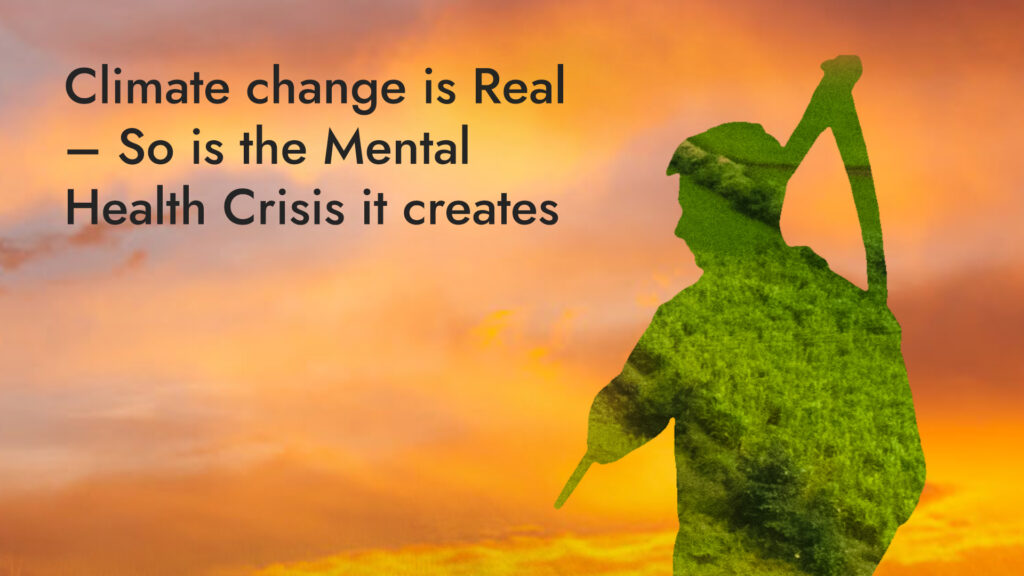Knowledge Centre
October 2024

Climate change a decade ago was most likely to be dismissed as a hypothetical situation that could or could not happen. Scientists’ warning of rising sea levels, extreme weather and changing ecosystems were seen as modern-day Cassandras, tolerated but with skepticism and indifference. Today we see the undeniable effects of climate change in our own backyards, we see erratic seasons and extreme weather events, the manifestations of which are only now sinking in. While much scrutiny has been concentrating on the tangible and ecological repercussions of climate change, its impact on our mental health has often been overlooked. It is time to address this critical aspect of the climate crisis.
Climate change & mental health
The adverse effects of climate change on mental health are no longer just conceptual, it is a stark reality for millions of Indians, especially in rural parts of the country. We at Raintree have seen this firsthand. Individuals, especially in marginalized communities are disproportionately afflicted with climate change propagated anxiety, stress, and depression. These ills are often taking a silent yet devastating toll on individuals, particularly in areas where livelihoods depend heavily on agriculture. In these areas, people constantly face the psychological threat of losing everything to uncertain climate-induced incidents like crop failures, water scarcity, and natural disasters. This strong feeling of anxiety further exacerbates the individuals’ capacity to adapt and recover from the effects of climate change thus undermining their resilience.
Strengthening Local Communities for Climate Resilience
For any climate action initiative to truly succeed, community participation and collaboration is necessary. For sustainable solutions to be successfully implemented, co-opted local stewardship is essential. Resilience needs to be fostered and strengthened not just at a community level but also for households and individuals for them to truly champion and embrace any climate action. This underscores the importance of integrating mental health and well-being into all aspects of climate initiatives.
At the Raintree Foundation, we recognize the deep interconnectedness between climate change and mental health. As we intensify efforts to cope with climate change, mental health must become the focal point of our response, ensuring that individuals are not only physically equipped to adapt but also to face an emotionally uncertain future.
Raintree’s Holistic Approach to Climate & Community Resilience
We have covered over two thousand individuals in nine villages under our Comprehensive Mental Health Program. This foundational initiative is focused on encouraging health-seeking behavior and nurtures community-led mental health solutions. One of the first few in rural India, our Manosaarthi Counselling Centre, inaugurated in November 2022 is a focal hub for building awareness, creating support groups, and providing trained Community Resource Persons. Furthermore, we motivate and equip communities to effectively tackle mental health issues and enhance their resilience to climate change. Raintree prioritizes mental health alongside climate action and is helping communities become self-reliant, resilient, and active contributors to a sustainable future.
Scaling Raintree’s impact: A call for collaboration & partnership
We at Raintree continue to make progress with our integrated approach which has yielded desired results for tackling climate change and mental health issues. Scaling these efforts to make a significant difference to larger communities requires greater collaboration and more investment. Further funding will abet capacity enhancement activities, encouraging bottom-up development, and establishing mental health support systems. This gives the means to communities to become active stewards and take ownership of climate action while addressing their mental health needs thus ensuring that climate action is inclusive, equitable, and far-reaching.
By Kiran Vernekar,
Global CEO, Raintree Foundation
To subscribe to our Newsletter



